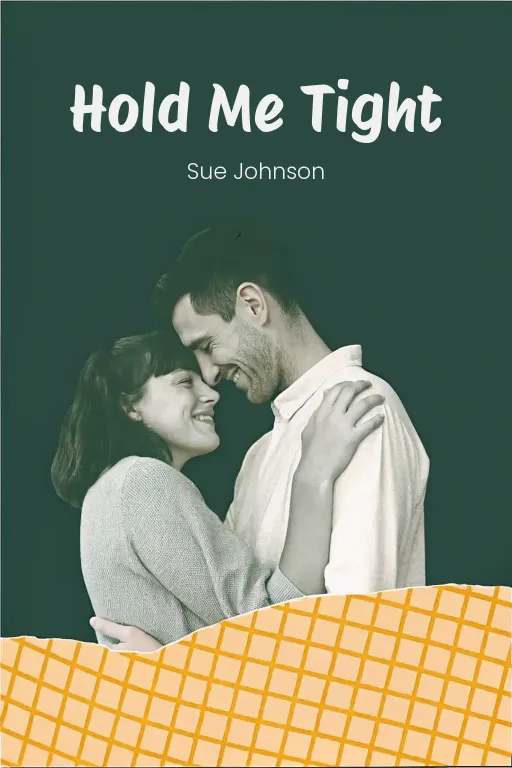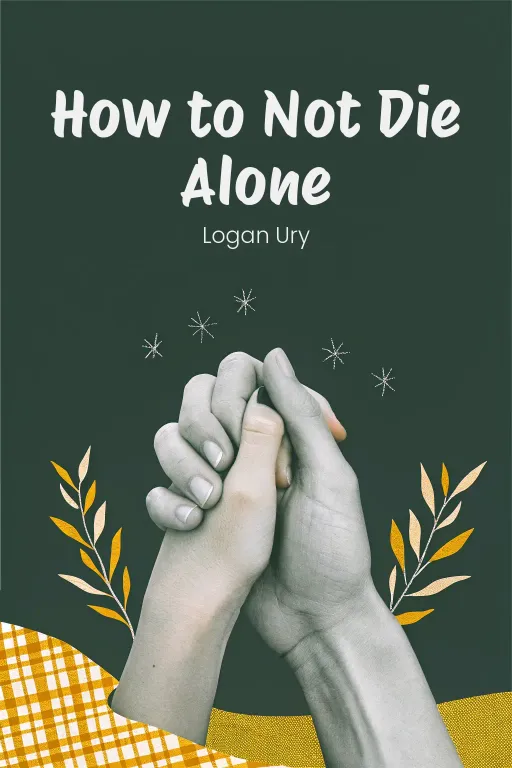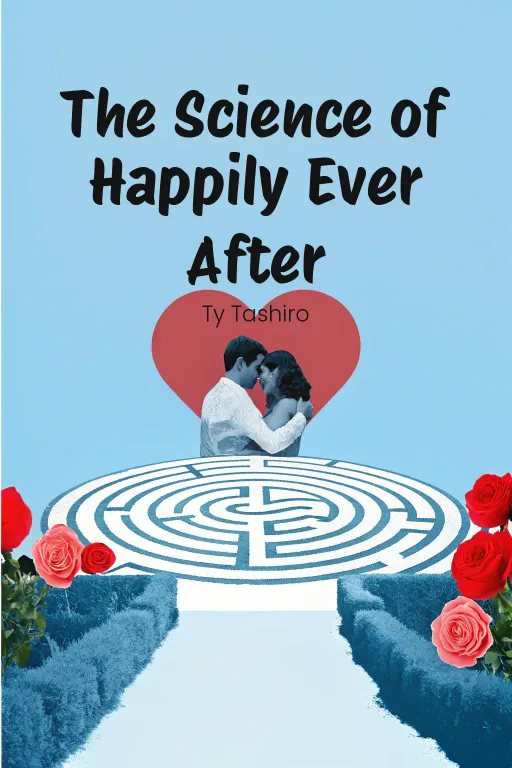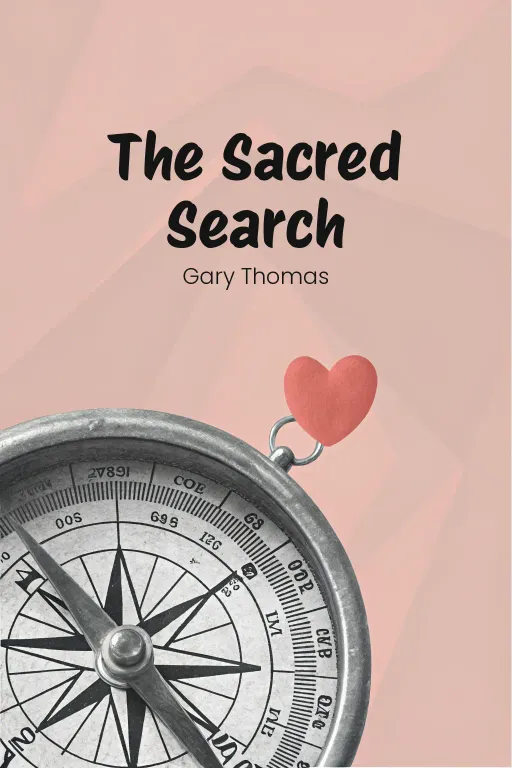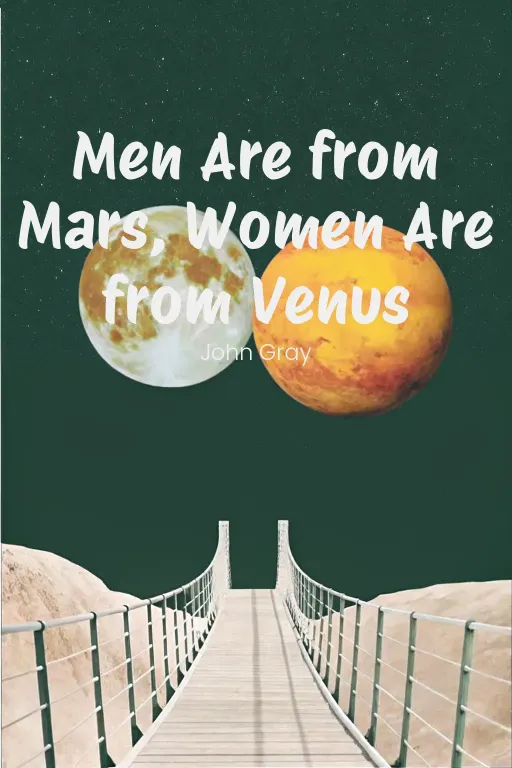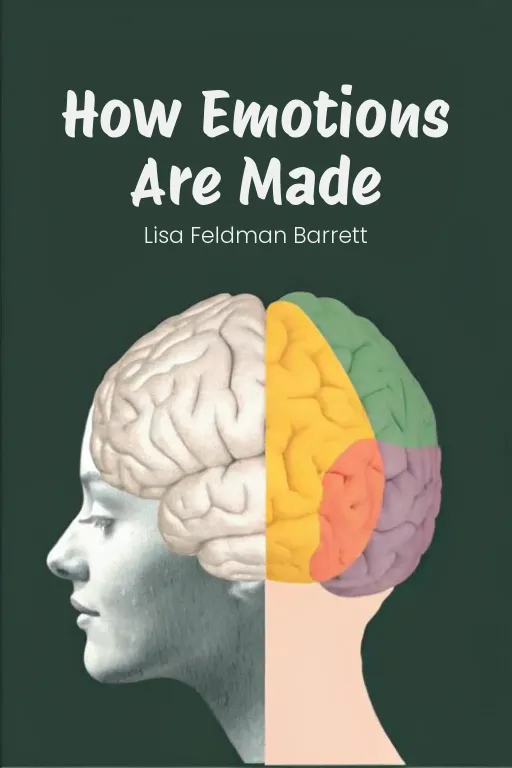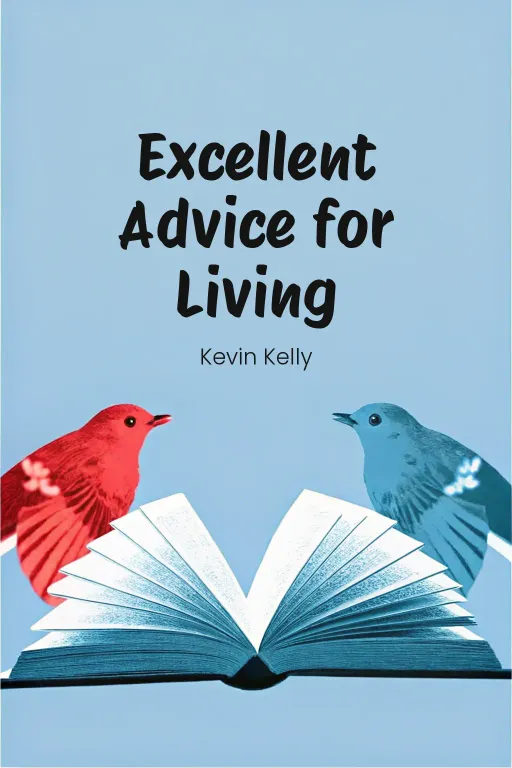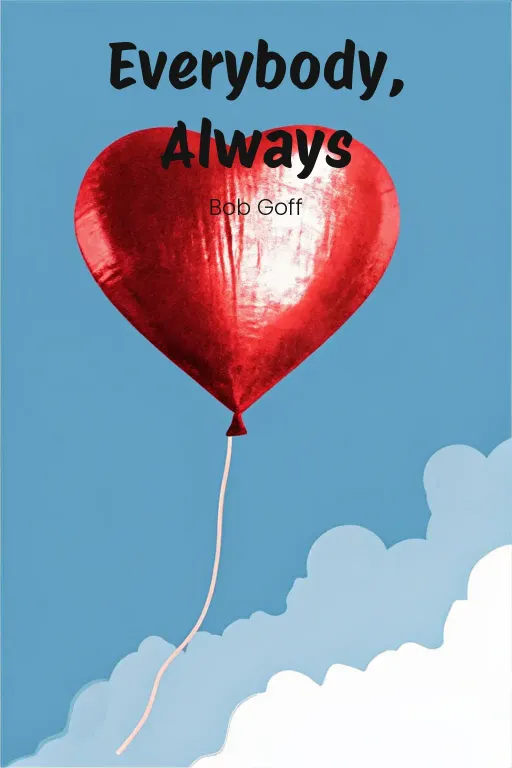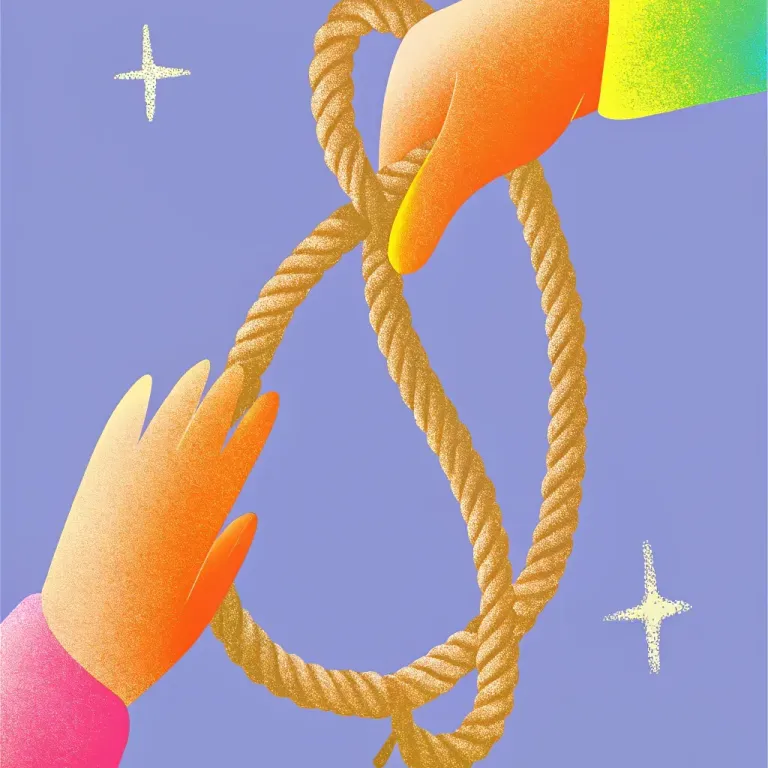
Breakups: Build a Better You, Not a Better Wall
Podcast by The Mindful Minute with Autumn and Rachel
5 Steps to Living Happily Even After
Introduction
Part 1
Autumn: Hey everyone, welcome back to the podcast! Today we're tackling a subject that, honestly, is pretty universal: breakups. Whether it's a quiet fade-out or a total emotional explosion, a lot of the time we're left feeling like we somehow messed up. But, what if that wasn't necessarily true? Rachel: Interesting, Autumn. Because usually the breakup narrative is all drama and pain, right? So, you're saying we can actually, I don't know, come out of it stronger? Maybe even “friends”? That's a pretty optimistic take. Autumn: It is! Katherine Woodward Thomas, in her book Conscious Uncoupling, offers a way to see the end of a relationship not as some kind of personal defeat, but as an opportunity. A chance to actually heal, to forgive, and to set ourselves up for a better future. The focus shifts from blaming each other to, really, fostering respect and some kind of collaboration, even when things are incredibly painful. Rachel: Right, right. Sounds almost… civilized. Although, let's be real, "dignity" isn't exactly the word that springs to mind when you're, you know, a sobbing mess on your kitchen floor with a tub of ice cream. Autumn: Totally, Rachel, and that's where Conscious Uncoupling brings in the practical side. Thomas lays out a five-step process that gives you the tools and the strategies to go from that heartache to a place of emotional strength. It's a way to build a bridge, not a wall, between you and your former partner. Rachel: Okay, the five steps – I'm on board. So, build a bridge, move on... But you also mentioned a ripple effect? What's the bigger picture here, the societal impact? Autumn: Good point. Thomas believes that by changing how we handle breakups individually, we can actually start a real cultural shift. Imagine a world where divorce or separation doesn't mean years of bitterness, but instead leads to healthier co-parenting and, ultimately, better relationships down the road for everyone. Rachel: Wow. That's a lofty goal... but you know, maybe not impossible. A new way to think about endings, concrete steps to take, and the potential for real societal change? Sounds like we have a lot to dive into today.
Reimagining Breakups with Compassion and Intentionality
Part 2
Autumn: Exactly, Rachel. To really get into this, let's start with the basics – how our culture views breakups. You know, we tend to measure a relationship's success by how long it lasts. So, breaking up often feels like failing. There's this silent rule that if you don't stay together "“till death do us part,"" you're somehow not good enough. It's pretty discouraging, right? Rachel: Totally, Autumn. Back when I was a divorce attorney, I saw how deeply people believed that. It wasn't just losing a partner; it felt like losing their value as a person. But, this idea of choosing dignity over blame… does it seem a bit too idealistic? Almost unrealistic? Autumn: I get why you'd say that, Rachel. Thinking that two people can calmly separate after a deep connection without blaming each other might seem unlikely. But, Thomas's method isn't about faking happiness or ignoring pain. It's about accepting that relationships naturally change over time. She challenges this old idea that love has to last forever to be meaningful. Rachel: Right, so acknowledging that relationships evolve, instead of "“failing,"" could lighten the emotional load. Still, going from theory to practice can be a big jump. Do you think people can really do this when they're super emotional? Like, when they're stuck thinking, "They hurt me, and I deserve answers!"? Autumn: That's where Thomas's concrete steps come in. She doesn't just suggest Conscious Uncoupling and leave you hanging. One key idea – creating a new "breakup story" – tackles exactly what you're talking about. Instead of dwelling on who's to blame, you focus on what you learned and how you grew. It's not about excusing anyone's behavior, but about rewriting your story to avoid becoming bitter. Rachel: A breakup story, huh? So, instead of "I got dumped because I'm unlovable," it's "This taught me to set boundaries," or something like that? I see how reframing could help people separate their self-worth from the end of a relationship. But Autumn, how do you get someone to start writing when they're completely heartbroken? Autumn: Good point, Rachel. Emotional pain can feel overwhelming, almost stopping you in your tracks. Katherine Woodward Thomas calls it "love withdrawal," comparing it to addiction symptoms. The first move, she says, is to practice mindfulness – noticing and naming your feelings. Recognizing anger, sadness, or betrayal without judging them creates some distance, which can ease the pain a bit. Rachel: Makes sense – like emotional first aid. Air out the wound so it doesn't get infected with shame or blame. But what if the breakup isn't smooth? What if someone feels used or deeply hurt? Is being respectful and working together even possible then? Autumn: That's definitely one of the toughest situations, Rachel, and you're right – this approach doesn't get rid of conflict or excuse real issues. But it does shift the focus from "winning" to something more valuable. Take Gwyneth Paltrow and Chris Martin, for example. Their decision to value the good parts of their relationship while separating is a great example. It wasn't about ignoring problems, but about prioritizing their roles as co-parents and their shared respect for each other. Rachel: Right, let's talk about that. When Paltrow and Martin first used this term, people made fun of it, calling it pretentious and out of touch. But honestly, their level of civility was pretty impressive. They avoided those public, nasty legal battles we see in the news, which probably helped their kids a lot. Do you think it's just easier for celebrities with all their therapists and mediators? Autumn: It's easy to think that, Rachel, but what they did isn't just for celebrities. The idea of prioritizing future cooperation over past problems applies to everyone. Conscious Uncoupling is a choice – a conscious decision to move from being destructive to being respectful, especially when you have shared responsibilities like children. You might not have millions to hire mediators, but even simple things like structured communication agreements can make a difference. Rachel: So, not "forgive and forget," but more like "agree to move forward responsibly"? And their story definitely shows the real-world value of Thomas's ideas. But how does this deal with the elephant in the room – grief? People can understand ideas all day long, but heartbreak is fundamentally emotional. Autumn: That's a big part of Thomas's work. She stresses emotional freedom – learning to accept and process grief without pushing it away. This might involve things like journaling, where you can safely express your raw emotions, or even breathing exercises to calm yourself in the moment. These are designed to help people actually feel their heartbreak instead of avoiding it, which, surprisingly, is what allows them to eventually move on. Rachel: Okay, I like this idea of "moving through" heartbreak instead of trying to escape it. It makes it seem like part of a bigger journey, maybe even a chance for growth instead of just endless sadness. But Autumn, what if more people embraced Conscious Uncoupling? What kind of impact could that have? Autumn: That's where it gets really interesting, Rachel. It's not just about helping individuals heal; it's about showing everyone around us – our families, kids, communities – a healthier way to handle relationships. When people navigate breakups with kindness instead of conflict, it questions those old, harmful breakup stories and opens the door to a bigger shift in society. Imagine a world where love in all its forms, even relationships that change or end, is valued rather than ridiculed. Rachel: That's a powerful vision, Autumn. A world where even endings have beauty and purpose, and people come out of relationships stronger, not shattered. It sounds like we have a solid plan for rethinking breakups, turning them from battles into opportunities for real change.
The 5-Step Framework for Conscious Uncoupling
Part 3
Autumn: Moving beyond these cultural stigmas naturally leads to actual steps for personal transformation. That’s where Thomas's five-step framework for Conscious Uncoupling comes in. It's a beautifully designed roadmap that goes from inner emotional work to how you act on the outside, beginning with steps that help you ground yourself emotionally and eventually moving toward rebuilding relationships with others and society. Rachel: So, it’s like running a personal marathon—you gotta lace up your emotional shoes before you even hit the road. Autumn, walk us through it. What's step one? Autumn: Step one is all about “finding emotional freedom”. This means facing the raw emotions that come after a breakup—grief, anger, rejection—without letting them control who you are or what you do. Katherine emphasizes mindfulness and emotional regulation as crucial here. Rachel: Mindfulness, okay. I can already hear some listeners thinking—"Great, meditate while my ex is posting vacation pics with someone new.” How does that “actually” work when you're in the middle of a meltdown? Autumn: That's a fair point, Rachel. But mindfulness isn't about avoiding the pain; it's about gently facing it. Her method involves naming emotions to bring clarity. Like, instead of just saying "I feel bad," you break it down into specifics like "I feel abandoned" or "I feel furious." This self-awareness helps you shift from feeling overwhelmed to understanding “why” you’re feeling this way. Rachel: So, it's a bit like labeling files on a messy desk. You make sense of the clutter by naming each one: anger, sadness, betrayal. Sounds calming in theory, but what if the emotions are still screaming at you? Autumn: That's where visualization comes in. Thomas suggests imagining an internal sanctuary—a mental space where you're safe to process without being overwhelmed. She suggests picturing something peaceful, like a beach or a forest, to create an emotional refuge you can return to anytime. Rachel: So, instead of screaming into your pillow, you mentally escape to a zen cabin? <Laughs> Jokes aside, it actually seems empowering, giving yourself permission to feel without judgment. Autumn: Exactly. And her case studies show this works. Take the woman mourning the end of a decades-long marriage, consumed by rage after being betrayed. By using mindfulness to connect with her anger instead of fighting it, she regained her emotional balance and shifted her energy toward rebuilding her life, rather than staying stuck in pain. Rachel: Okay, I see how emotional freedom sets you up for step two. But where does this reclaiming power come in? Autumn: Step two, “Reclaim Your Power and Your Life”, is about breaking free from playing the victim. Instead of staying stuck in blame—whether it’s aimed at yourself or your ex—it’s about taking ownership of how you respond to the breakup. This means reframing the “breakup story” from a tragedy to one of growth and self-discovery. Rachel: Rewriting the story of the relationship? That's a tall order when someone's stuck in a “woe is me” loop. What’s the practical move here? Autumn: One effective tool is “narrative reauthoring”. For example, instead of focusing on “They left me because I wasn’t good enough,” you might reflect and realize, “This relationship taught me that I deserve a partner who values open communication.” It’s about looking at the past through a lens of insight, rather than self-pity. Rachel: So, you go from being a helpless narrator to an author who's in charge. Clever. But what about those deep-seated beliefs, like "Love is supposed to last forever," or "I'm always the one who gets hurt"? How do you rewrite “those” kinds of scripts? Autumn: That's part of Katherine's suggested guided self-reflection process—digging into those limiting beliefs, figuring out where they came from, and consciously rewriting them. A great example is Mark, who assumed the breakup of his long-term relationship made him a failure because he believed true love should never end. By journaling and questioning that belief, he realized how much it had been inherited from the cultural ideas he grew up with. Breaking that belief allowed him to separate his self-worth from the length of the relationship and, get this, rediscover his passion for painting—something he'd given up a long time ago. Rachel: So, by rethinking the narrative, Mark reclaimed not just emotional control but a sense of personal identity, too. I like this direction. But Autumn, what about people stuck in those rinse-and-repeat cycles of bad relationships? That's where step three comes in, right? Autumn: Exactly. Step three, “Break the Pattern, Heal Your Heart”, is about getting to the root of those cycles. It's about identifying what Katherine calls "source-fracture stories"—deeply ingrained narratives from past wounds—so you can stop repeating destructive patterns. Rachel: Source-fracture stories. Sounds like something out of a fantasy novel. What does that actually look like? Autumn: Imagine someone who grew up feeling emotionally neglected. They might believe, "I'm not worth attention or care." That belief can shape their adult relationships, leading them to accept partners who are emotionally unavailable. The key is uncovering these stories and actively rewriting them with affirmations like, "I am deserving of love and care." Rachel: And how do you dig up these stories—hire an emotional archaeologist? Autumn: In a way, yes! Reflective questioning helps uncover them. Asking yourself things like, “What patterns do I keep repeating in relationships?” or “What boundaries do I tend to ignore?” can reveal those narratives. One example is Kate, a successful professional who realized her constant attraction to unavailable partners came from a childhood belief that self-sufficiency meant not needing anyone. By recognizing and reframing that, she could set healthier boundaries and finally open herself up to vulnerability. Rachel: That’s interesting—almost like hacking your emotional blueprint. And it leads right into the next step, right? Because once you’ve healed those stories, you’re no longer just cutting ties but reshaping your future. Let’s hear it. What’s next?
Cultural and Psychological Shifts in Relationship Endings
Part 4
Autumn: Okay, Rachel, so after you've really dug deep and rewritten those old stories, we get to step four: “Becoming a Love Alchemist”. And this is where the real transformation happens. It's about turning that pain into something powerful, something that sparks new growth, not just within yourself, but also in how you approach future relationships. Rachel: “Love Alchemist?” I have to admit, Autumn, that sounds a bit… much, doesn't it? Are we talking about brewing up heartbreak remedies and, like, casting spells to get over our exes? Autumn: <Laughs> Very funny, Rachel! But seriously, it's about taking complete responsibility for your part in how things went down. It's about making a conscious choice to grow in a way that'll fundamentally change how you show up in love from now on. It's about making decisions that bring you closer to the future you actually want, instead of just repeating old patterns. Rachel: Okay, so no actual magic wands then? A bit disappointing. But, let's get down to earth here—how does someone practically become this “Love Alchemist” you speak of? Autumn: Well, it starts with really understanding the lessons you've learned from the breakup. How can those lessons actually drive growth? Thomas suggests things like visualizing your “ideal future self in love.” You know, picture the kind of person you want to be in relationships—authentic, compassionate, confident—and then work backwards from there. What needs to change in you to actually become that person? Rachel: Interesting. So, instead of dwelling on what you've lost or what went wrong, you're using the pain to take a good, hard look at yourself and figure out how to improve. It's almost like flipping the usual post-breakup pity party on its head, isn’t it? Autumn: Exactly! It’s about empowerment. And I love how Thomas puts it: taking responsibility without blaming yourself. Recognizing that, even if the breakup wasn’t your fault, there's still so much room for you to grow. Rachel: That makes sense. I mean, even if your partner was the one who, say, cheated or just shut down emotionally, you can still examine how you might improve your own communication skills or set healthier boundaries going forward. Autumn: Precisely! And there's this lovely idea in Thomas’s work about kind of reclaiming love in a broader sense, not just romantic love, but love for yourself, for the people in your life, and even for just life itself. It allows the scars to be powerful symbols of resilience and wisdom, rather than just permanent open wounds. Rachel: I like that a lot—it’s hopeful, but not in a cheesy way. But, there’s still one more step to the process, right? Once you’ve gone through all this emotional digging and transforming, how do you actually put it into practice in your everyday life? Autumn: That brings us to step five, “Creating Your Happily Even After”. This is the integration phase, where everything you’ve learned and felt comes together to shape your new life. It’s about proactively designing a future that “really” lines up with your values, your priorities, and this new sense of self you've discovered. Rachel: “Happily even after"—I like the name. So, what does that look like in reality? Are we talking about signing up for pottery classes? Finally braving the dating apps? Autumn: It could be anything that feels like a fresh start or a way of reclaiming your power, “really”. For some, it might mean finally pursuing that passion they've always put off or reconnecting with old friends. Others might need to build completely new relationships that better reflect who they’ve become. Thomas also suggests making new friends, focusing on gratitude, and even creating rituals to honor this transition. Rachel: Hmm. Rituals, huh? I’m guessing throwing your ex’s favorite band t-shirt into a bonfire is not exactly what we’re going for here? Autumn: <Laughs> Not exactly, Rachel! A ritual in this case might be writing a farewell letter to your old self, or holding a small ceremony, even just for yourself, to mark the end of that chapter. It's about creating a meaningful moment that gives you a sense of closure and helps you move forward, both mentally and emotionally. Rachel: I get that. Breakups can leave so many loose ends, you know? Having a symbolic way to tie them up… it sounds kind of satisfying, actually. Autumn: And so healing! That’s the whole idea of the process. It’s not just about surviving a breakup, but “really” thriving afterwards. When you consciously create a life that truly reflects who you are, the end of that relationship doesn't define you anymore. It becomes a stepping stone towards something even greater. Rachel: So, the message here is pretty clear. Breakups don’t have to be this endlessly awful emotional wasteland. With tools like these, they can actually be a chance to reevaluate everything, grow, and evolve. It sounds like a lot of hard work, but it definitely seems worth it. Autumn: Absolutely, Rachel. And what's “really” exciting is how these steps can ripple outwards, beyond just individuals. When more and more people start to approach love and loss in this way, we start seeing bigger cultural shifts. But before we get too far ahead, let’s dive into what this means on a larger societal level—how embracing conscious uncoupling can actually change a lot more than just the people directly involved.
Conclusion
Part 5
Autumn: So, today we dove into Katherine Woodward Thomas’s “Conscious Uncoupling”, a really interesting way to think about ending relationships with, you know, dignity and a focus on healing, right? We went through her five steps, from gaining emotional freedom to figuring out how to create a "happily even after." Rachel: Right, Autumn. And we hit on some pretty big ideas, didn't we? Like, how do you switch from just blaming the other person to taking responsibility yourself? And why is it so important to see a breakup not as the end, but just an end? Plus, how confronting the pain actually helps you grow. Autumn: Exactly! And what really hit me was the idea that breakups can be chances to heal and grow – not just for us, but for everyone in our lives. If we ditch the old, tired stories and approach love, even the messy endings, with kindness and awareness, we can totally change how we see relationships. Rachel: So, here’s the question I’d throw out to our listeners: the next time you’re going through a breakup, ask yourself, "Okay, what new story can I write here? How can I use this to become better?" It's not about making heartbreak painless, it's about making it purposeful. Autumn: I love that, Rachel. If we all saw endings as chances to start fresh, imagine how different relationships could be! Until next time, let’s keep that hope alive.
